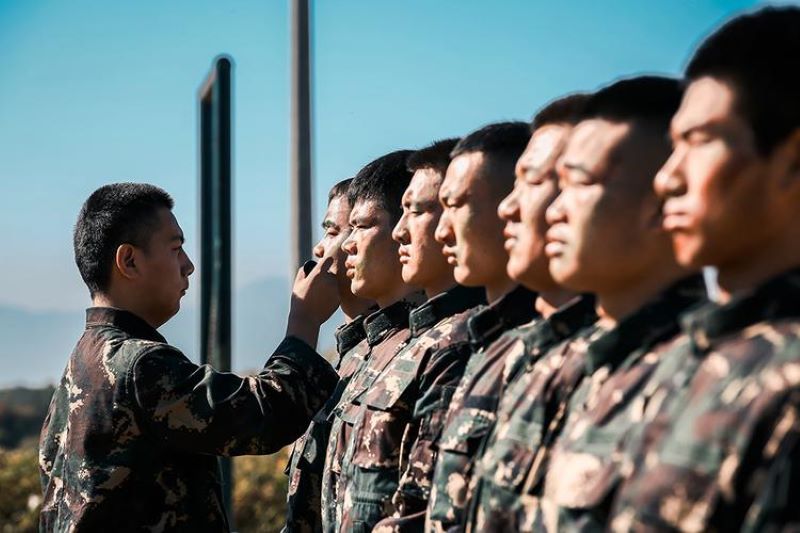This problem is not as simple as it seems.
The simple answer is that it is legitimate defense, because Article 20, Paragraph 1 of the Criminal Law states:
Acts taken to stop an ongoing unlawful infringement in order to protect the state, public interests, one's own or other people's personal, property and other rights from the infringement shall be regarded as legitimate defense and the person shall not bear criminal liability if they cause damage to the infringer.
Taking appropriate coercive force to stop unlawful infringement in order to protect the personal safety of others can also be considered legitimate defense.
This is also true in the United States. For example, Section 609.065 of the Minnesota Code stipulates that if a person reasonably believes that he or another person (the actor or another) is in danger of death or serious bodily injury, or in order to prevent a serious crime from occurring in his or her residence, he or she can deprive another person of his or her life without being held criminally responsible.

However, in reality, this problem may become more complicated, and some derivative issues can even be used as the topic of a legal paper.
For example, what is the definition of defensive provocation?
Defensive provocation is easy to understand: Zhang San wants to kill Li Si, but is afraid of being sentenced, so he deliberately slaps Li Si in the face and spits on his face. Li Si becomes furious, smashes the bottle in his hand and rushes over, and Zhang San takes out the 40-meter-long knife he has prepared and stabs Li Si to death.
During this process, Zhang San had already harbored the intention to cause Li Si's death. He deliberately provoked Li Si to commit illegal infringement on him, and then used the excuse of self-defense to cause his death, which should not constitute self-defense.
If the bodyguard's situation is taken into consideration, the determination of defensive provocation will be more complicated. Imagine if the bodyguard did not know that Zhang San had the intention to commit a crime, and the two parties did not communicate about it. The bodyguard only saw Li Si trying to stab Zhang San with a broken beer bottle, so he acted as a tool in his professional spirit and seriously injured Li Si. In this case, should the bodyguard bear criminal responsibility?

For example, when it comes to fighting, the problem becomes complicated.
Fighting between two parties is not considered self-defense. As for what is considered a fight, we need to consider the cause of the incident, whether the client was prepared, whether there was fault in the escalation of the conflict, etc. Imagine if the bodyguard did not know that the client intended to fight with others (he did not say that he was going to fight in a group when he was hired, but only said "protect me while we talk"), and did not take the initiative to escalate the conflict (he only took action when the client was beaten), then should he be considered to have participated in the fight?
This situation may be rare in reality, but it is still a small legal game that can exercise the brain. The answer is not that important and it can be used to exercise your understanding of relevant knowledge.





